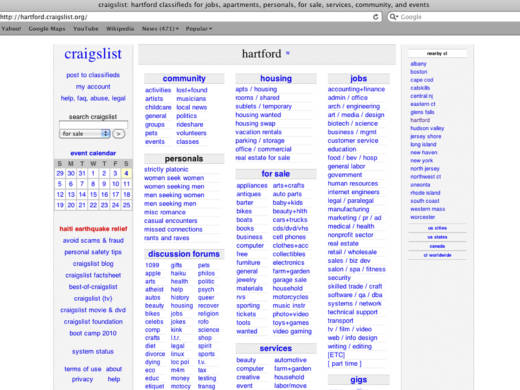Proponents of the measure have argued that it makes Internet sites more accountable for the content users post that could contribute to child sex trafficking.0
But as Alina reported, tech companies see this as "the first major cutback to the protections that these companies have had under the law." And sex workers have argued that this will make people who work in the industry less safe, pushing them onto the street or deeper into the dark web.
Trump has not yet signed the bill, which is known as FOSTA. It passed in the House by 388-25 and in the Senate by 97-2.
Until 2009, Craigslist had a section of the website called "erotic services," where people openly advertised sex. That year it changed the name to "adult services" and promised stricter screening, after a medical student in Boston was accused of killing a woman he met through the site, NPR's Tovia Smith noted. Craigslist eventually stopped listing ads for "adult services" in 2010, as NPR reported, though its personals section has continued until now.
The site's popular "missed connections" section remains in place in the U.S. The personals section is still accessible outside the U.S. – users must confirm that they are 18 and understand they may see adult content.
Reddit has also announced policy changes this week. It said that users could not use the site to "solicit or facilitate any transaction or gift involving certain goods and services," which include:
- "Firearms, ammunition or explosives;
- "Drugs, including alcohol and tobacco, or any controlled substances (except advertisements placed in accordance with our advertising policy);
- "Paid services involving physical sexual contact;
- "Stolen goods;
- "Personal information;
- "Falsified official documents or currency"
The Reddit statement adds: "Reddit is not intended to be used as a marketplace and takes no responsibility for any transactions individual users might decide to undertake in spite of this." As the site wrote, "Always remember: you are dealing with strangers on the internet."
Alina has dug into the legal history of how much responsibility Internet companies have for content published on their sites. Read it here.
Copyright 2018 NPR. To see more, visit http://www.npr.org/.

